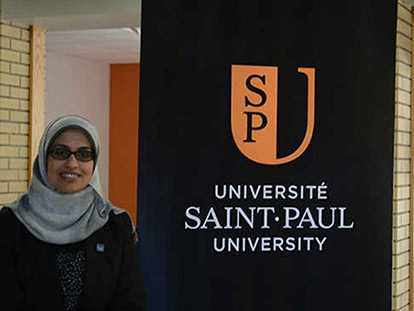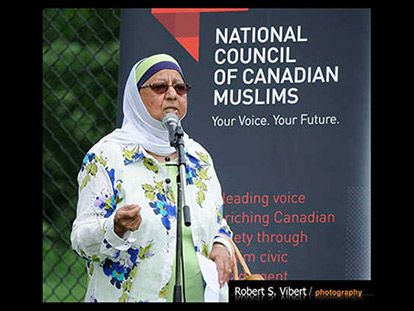Dec
Dec
For new immigrants, the long painful road to settlement is historically marked by trepidation, adversity, and ultimately, triumph.
The Environics Institute is a non-profit founded in 2006 by Michael Adams, author of Unlikely Utopia, as a means to listen to unheard Canadian voices. Keith Neuman, the Institute's Executive Director, describes how Adams' interest in pluralism led him to respond to the Pew Research Centre's 2006 study of Muslims in Europe.
The Pew study found a disquieting truth. Mainstream Europeans voiced significant concern about the perceived failure of Muslim immigrants to adapt and their refusal to conform to the dominant culture, while Muslims themselves articulated anxiety related to hostility by greater society.
However, no such studies were being done in Canada, while in the United States, research based on faith is problematic and fraught with tension.
But Adams felt intuitively that the Canadian experience was distinct from the European story. Partnering with the CBC, Environics Research Group polled 500 Canadian Muslims as well as 2000 plus members of the general public to determine the Muslim experience in Canada.
The results were released in 2007, coincident with the debut of the landmark CBC television series, Little Mosque on the Prairie.
On the whole, Adams' optimism was justified. Not only did a whopping 81% of the Canadian Muslims polled feel satisfied with their lives in Canada, but their level of satisfaction superseded that of the general population, of whom only 61% were content with life.
There was more good news. Of the Canadian Muslims polled, 73% were “very proud” to be Canadians and the vast majority ”“ 82% - were unsympathetic to the attempts of the Toronto 18 to attack targets in Ontario.
The poll found that only 17% of Canadian Muslims felt that Canadians were hostile to them on the basis of their faith. This contrasts with the experience of beleaguered European Muslims, of whom 51% in Germany felt that Germans were hostile to Islam.
The European Muslim experience has been marked by overt discrimination, with formal banning of the hijab in several nations, including France and Belgium. In Canada in 2006, no such legislation existed, but recent attempts such as the proposed Charter of Values in Quebec may alter traditionally less reactionary sentiment in Canada.
Upon examination of the attitudes of the general public toward Muslims there does appear to be a disconnect. While only 23% of the Canadian Muslims polled want to remain distinct from larger society, 57% of Canadians believe that Muslims want to remain distinct ”“ a clear dichotomy.
Integration, the role of women and hijab are common flashpoints when it comes to probing tensions between Muslim Canadians and Canadians in general.
Canadian Muslims are proud of their Muslim identity. But their perspective clashes with the decidedly more negative opinion of their neighbors, who look askance at this seemingly misplaced pride. Only 33% of Canadians feel that Muslims' positive sense of identity is cause for celebration, while 85% of Muslims feel that their Islamic values are Canadian values.
With respect to ideology, fully 80% of the Muslim Canadians polled identify as moderates.
The role of women is the most sensitive barometer of a culture's inclusivity. Most of the Canadian Muslims polled (72%) are unconcerned about Muslim women taking on expanded roles. When it comes to the headscarf, Environics pollsters found that nearly 60 % of Muslim women eschew the covering, while only a negligible proportion wore niqab (face veil). Notwithstanding this, 86% of those Muslims feel that banning the hijab is unwise while only 55 % of the general public feels the same way.
The overwhelming conclusion is that the Canadian Muslims polled are generally happy and subscribe to moderate views.
Just this November, the Institute published the results of a survey commissioned by the Pierre Elliot Trudeau Foundation. Forty percent of Canadians believe that Muslims face frequent discrimination in Canada, and a third believe that discrimination towards new immigrants can be attributed equally to government policy, public attitude, and to the immigrants themselves.
As the war on terror loses urgency, Neuman feels it's time for an updated study. The figures, far from being dry meaningless facts can create empathy for the newest wave of immigrants to Canada and help to tell their history. They can also allay the fears of those who believe that Islam is an alien creed whose adherents want to remake Canada in its image, and more prosaically, can guide public policy.
The Institute will be looking to see how Muslim Canadians are faring in the new 2013 study. Sponsors are needed to launch the study. For more information, visit
http://www.environicsinstitute.org/institute-projects/projects-in-works/survey-muslims-canada
For more information about the 2006 study, visit:
http://www.environicsinstitute.org/research-digest/research-commentary/muslim-canadians
This article was produced exclusively for Muslim Link and should not be copied without prior permission from the site. For permission, please write to info@muslimlink.ca.












